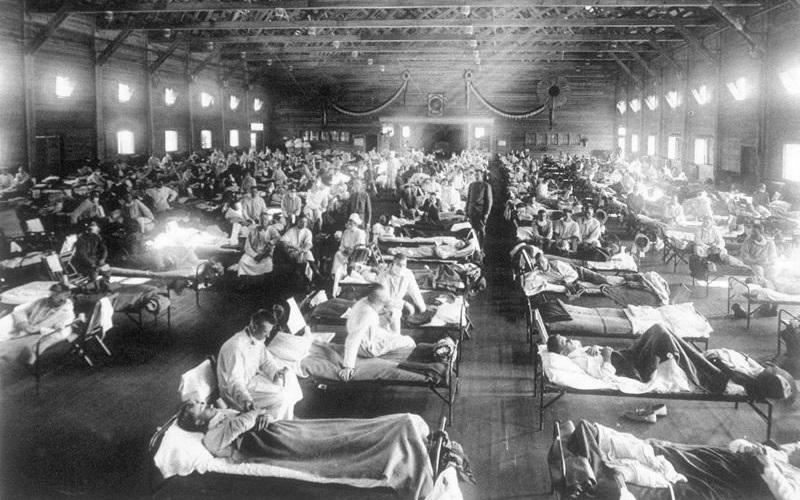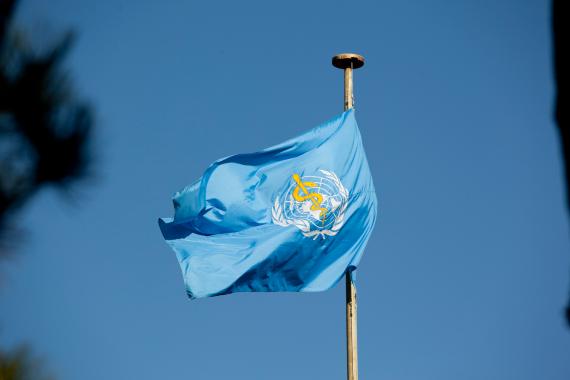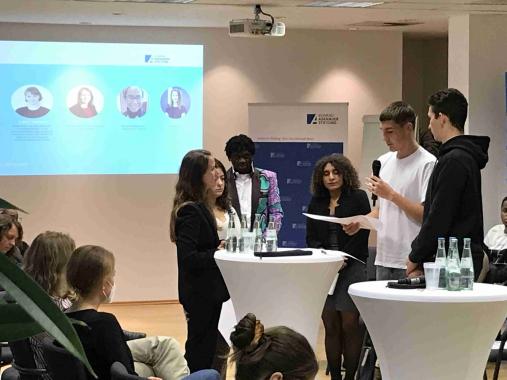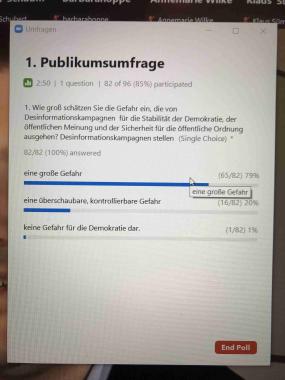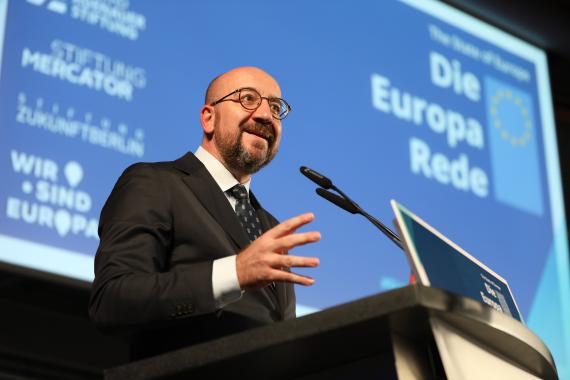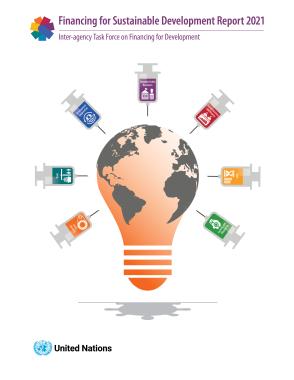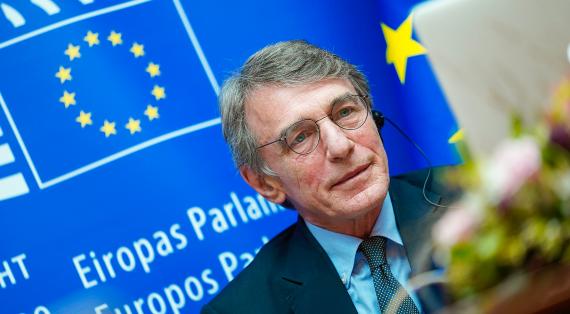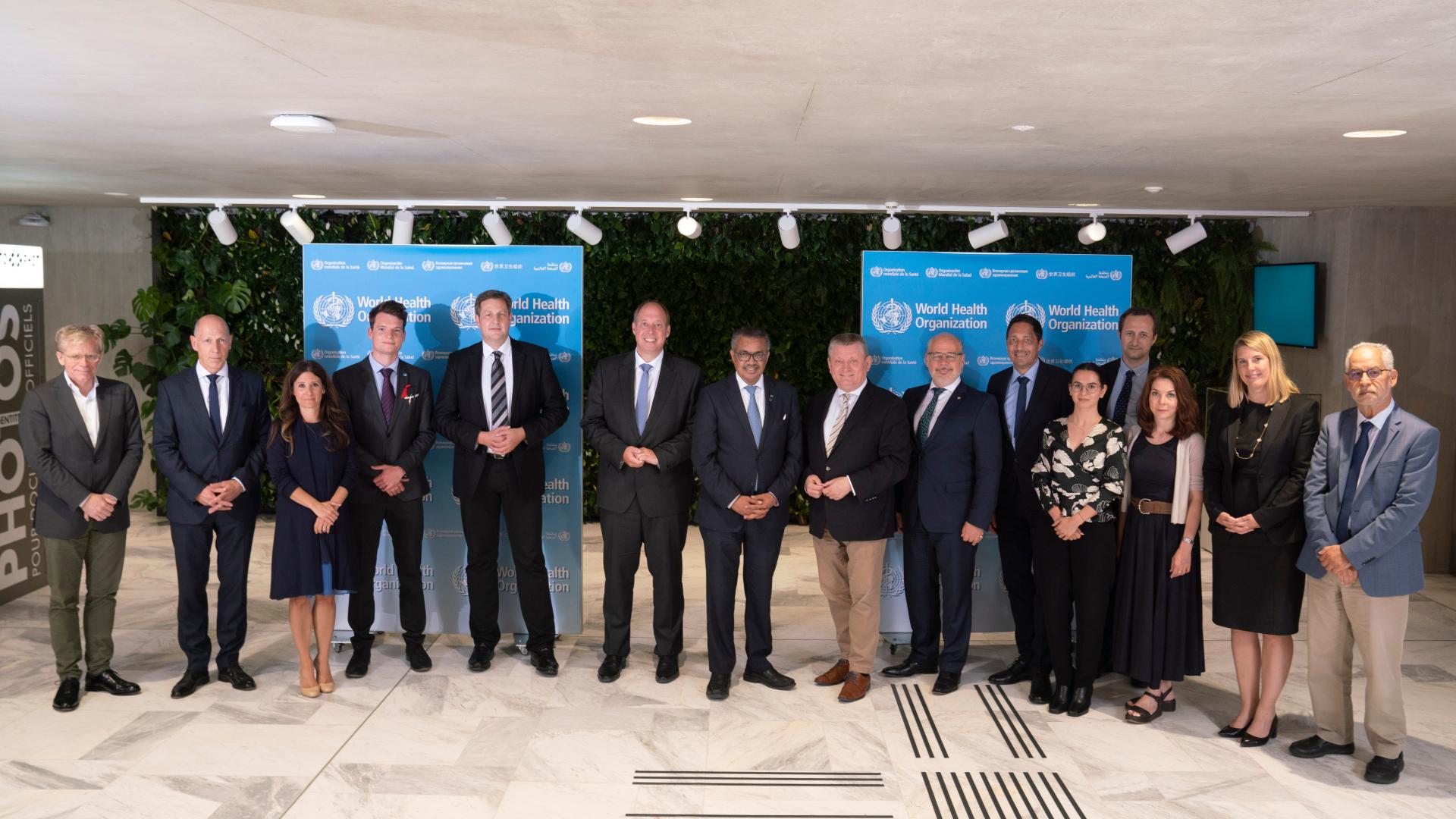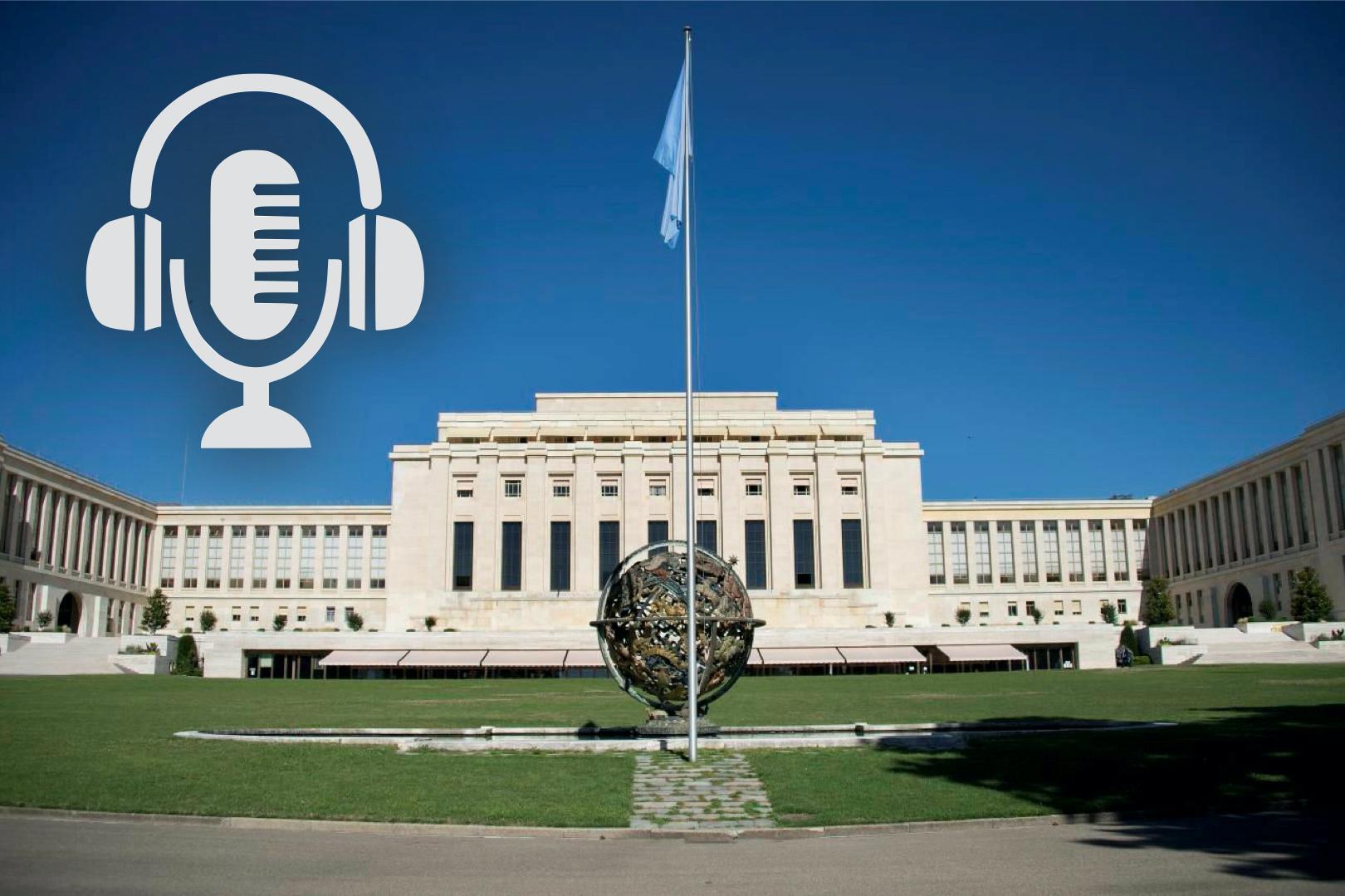We will find other forms to stand by one another as families and as a society.” There are already many creative forms that defy the virus and its social repercussions.
At a glance
- The COVID-19 pandemic has shown that health in a networked world must be approached globally and that dangerous infectious diseases can quickly lead to global crises.
- Germany and Europe were not prepared for a pandemic. Unclear responsibilities, strong dependencies on production sites in China and India and inadequate communication were some of the shortcomings.
- The COVID-19 pandemic raised public awareness of the link between climate and health. Climate protection is always also health protection.
- In our work, we view the pandemic as a complex issue that needs to be considered in a comprehensive context. Our guiding question when dealing with COVID-19 is: What lessons can be learnt from the pandemic?
Content
1. Direct and indirect implications of the pandemic
2. Sustainable actions as a form of pandemic prevention
3. Impact of the pandemic both in Germany and abroad
4. Our offers and projects on the topic
5. Publications, events and media contributions on the topic
The Corona pandemic, with all its political, social and economic implications, has illustrated that health hazards such as infectious diseases, which emerge in distant countries, can quickly turn into a worldwide crisis situation in our globalised world. Supposedly robust, resilient health systems, entire national economies, and, not least, society itself are therefore put to the test. The pandemic strikingly demonstrates the global dimension of health – affording the Konrad-Adenauer-Stiftung with an opportunity to continuously analyse developments.
Direct and indirect implications of the pandemic
Especially in Germany, the Corona crisis has revealed a range of deficits in the healthcare system: A weak data situation, unclear competences and a lack of coordination, inadequate communication, poor networking across sectors and unequal distribution of risks and burdens among the population are the most salient issues here. Particular emphasis was also placed on the inadequate preparation for cross-border infectious hazards, which, at the onset of the pandemic in 2020, led to rash and sometimes uncoordinated measures not only in Germany, but also in a number of European neighbouring states.
Border closures, export bans of protective material and those states that generally decided to go it alone, remain etched in our memory. The EU Commission is now dealing with this issue to some extent. The competences of the European Medicines Agency (EMA) and the European Centre for Disease Control (ECDC) were expanded, and the development of a European Health Union has been accelerated.
What is more, the dependency on a few production sites in China and India for active pharmaceutical ingredients and pharmaceuticals is blatantly manifest. The continually adjusted list on delivery and supply bottlenecks, the European Pharmaceutical Strategy as well as, in general, the intensified discussion on a reshore of production facilities to the EU are clear indicators for this.
At the same time, the pandemic not least presented with us with a significant digitalisation boost. It is gradually becoming clear what changes it implies over the long-term. We can now already see: The Corona pandemic has changed the way we interact with one another – more people use digital services that enable more flexible communication and participation.
Sustainable actions as a form of pandemic prevention
At the same time, the direct impact of climate change is now becoming the focus of attention in Germany. The 2021 floods in the Ahr valley were proof of human vulnerability. The correlation between climate and health (such as in the preamble to the Paris Climate Agreement), has been made time and again.
Germany, too, is making a greater commitment to planetary health and a “sustainable planet” within the framework of its G7 Presidency. What is certain is that climate protection is always one and indivisible with the protection of health. The extent to which concepts such as “One Health”, “Health in All Policies” or “Planetary Health” provide a reference point to this end, is the subject of many debates within the Konrad-Adenauer-Stiftung.
Impact of the pandemic both in Germany and abroad
Like no other health emergency, the Corona pandemic has heightened public attention and awareness of public health issues in Germany and around the world. We can assume that the future debate on health issues and the role of the state and civil society in crises will be more intense – both in Germany and abroad.
The Konrad-Adenauer-Stiftung uses events, studies, and analyses to participate in political and societal discussions on the impact of Covid-19; some of which is only gradually becoming evident. We do not interpret the pandemic as an isolated issue solely to be attributed to the health sector, but instead attempt to embed the debate into the larger context and to think about politics, the economy and society as part of a continuum. We lead the way with platforms for interdisciplinary knowledge sharing in Germany, Europe and the countries of the Global South. Here one of our key questions is what lessons can be learnt from the pandemic.
We would like to provide political decision-makers in Germany and abroad with the impetus for addressing challenges surrounding the repercussions of Covid-19. We therefore advocate the conclusion of a legally binding pandemic treaty at international level, and uphold the importance of free trade as the backbone of our prosperity and economic order.
Our topic page provides further exciting inspiration on this and continually bundles the contributions of our experts as well as staff abroad on the Corona pandemic.
Our offers and projects on the topic
Publication projects
The Corona pandemic is engaging scientists from a wide spectrum of disciplines around the globe. With our publication projects, we aim to contribute towards exploring the pandemic and its impact especially from a historical, political, economic, legal, and social perspective.
The Corona Crisis in a Historical Context
The Corona pandemic as a global crisis phenomenon caught many states off guard, and, in some cases, led to very different measures by individual governments. On our project page on the “Corona Crisis from a Historical Perspective”, we focus on the historical classification of the pandemic. How can governments’ attempts to overcome the pandemic be categorised? Was there ever a comparable situation before? In a series of irregularly published texts by historians, we want to provide guidance based on history regarding these and similar questions and contribute to their answers.
Contributions to the Debate on Triage
The issue of triage appeared on the political agenda with the outbreak of the COVID-19 pandemic in Germany and Europe in Spring 2020. How are we to deal with triage situations when an overload of the health system requires prioritising patients and leads to a lack of available capacities to sufficiently care for all those who are ill. Our contributions on the topic discuss and debate important issues in this context, such as according to what criteria should a decision be made for or against treating a patient in such a case?
Working group
In 2019, the Konrad-Adenauer-Stiftung established the Working Group Global Health. It sees itself as a network for experts on this issue.
Global Health Working Group
With its Working Group, the Konrad-Adenauer-Stiftung bundles and consolidates its expertise on the topic of global health. The goal is to intensify dialogue on current issues of global health and provide a platform where experts can communicate their knowledge and exchange opinions. Members of the Working Group regularly get together to exchange views on current problems and political developments and to work out solutions.



